ChatGPT学习心得一(使用node+react做了一个案例)
 ChatGPT学习心得一(使用node+react做了一个案例)
ChatGPT学习心得一(使用node+react做了一个案例)

项目地址
项目截图
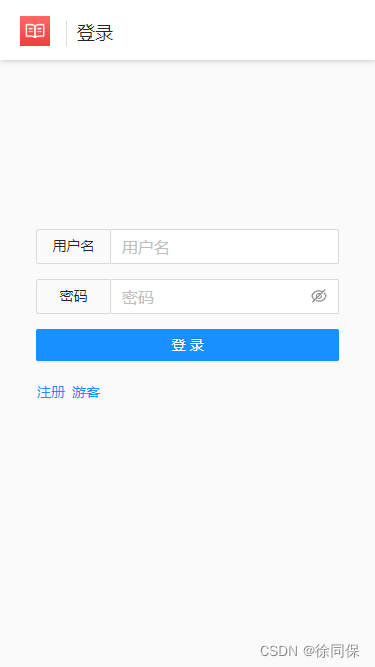
![]() 编辑
编辑
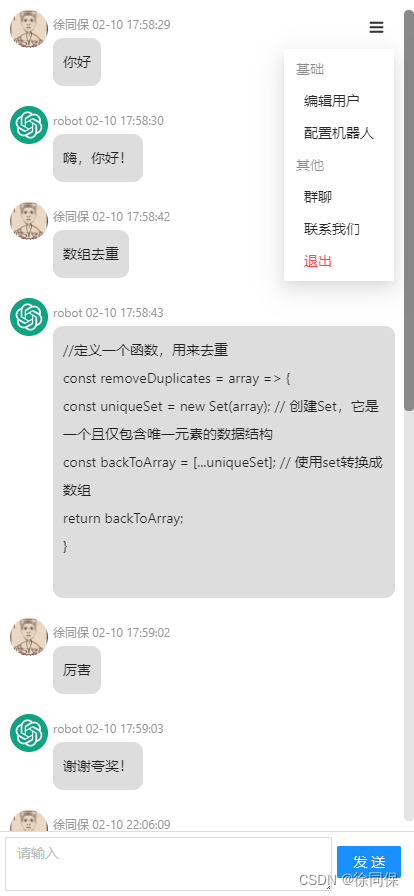
![]() 编辑
编辑
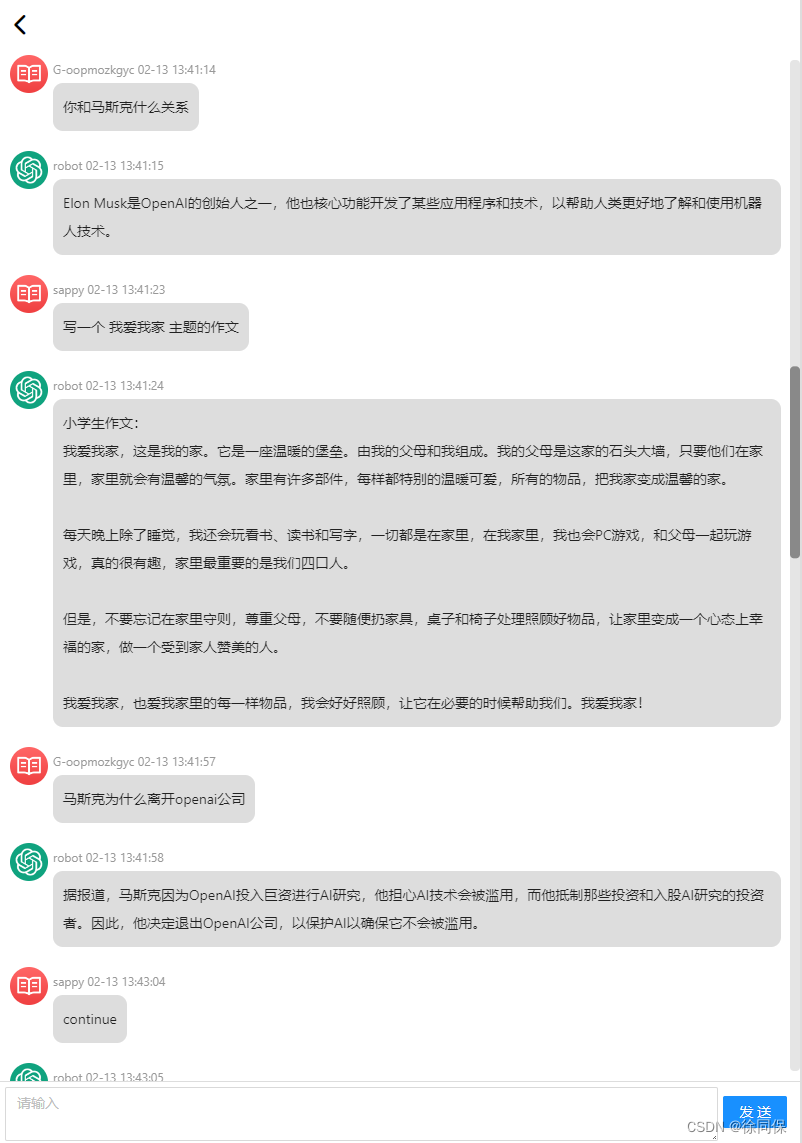
![]() 编辑
编辑 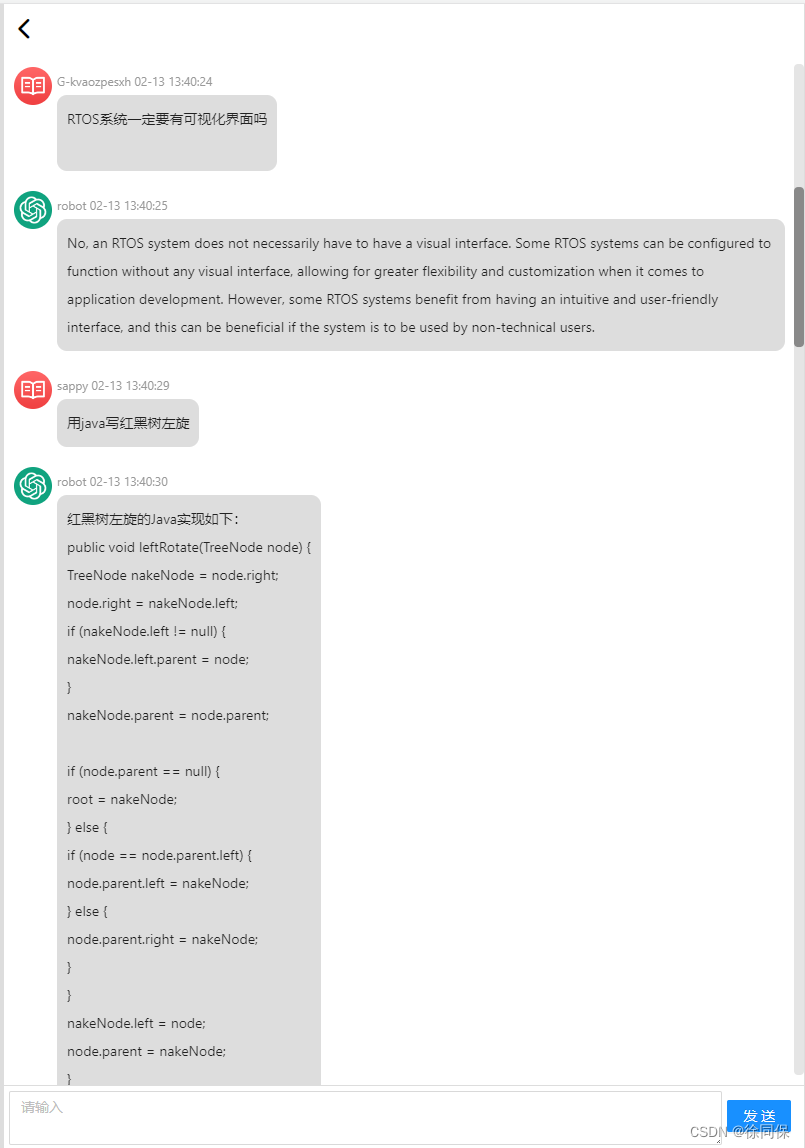
![]() 编辑
编辑
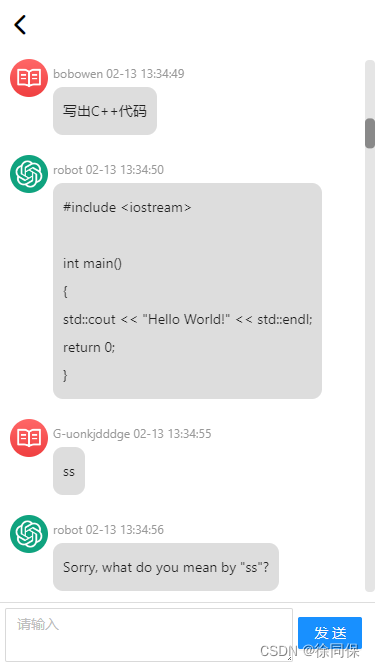
![]() 编辑
编辑
使用技术栈
node+SQLite+redis+nginx+log4js+express+jenkins+cdn+react+antd+react-scrollbars-custom+iconfont+webpack+postman+axios+redux+immutable+npm+yarn+openai等等
官网
https://openai.com/blog/chatgpt/
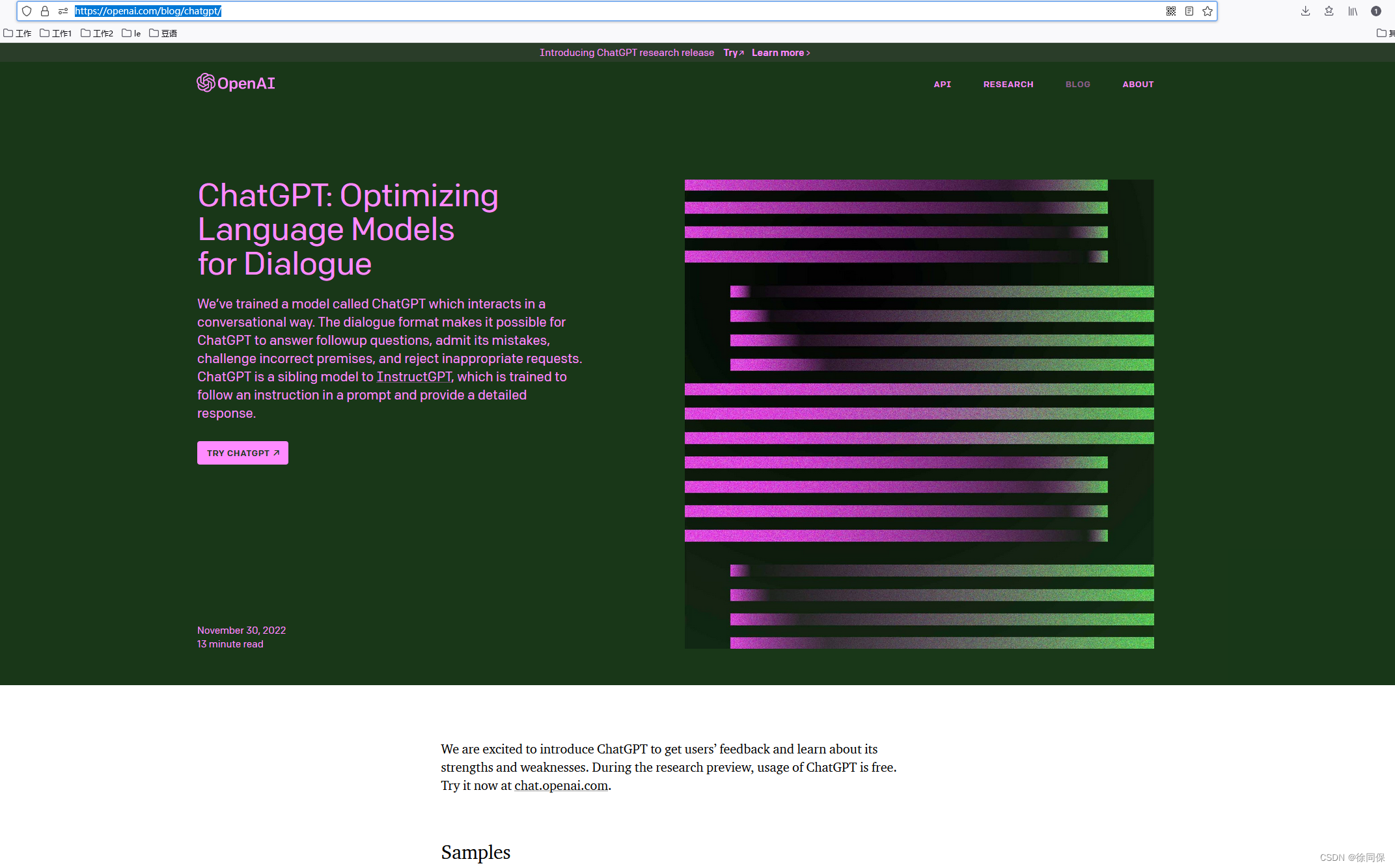
![]() 编辑
编辑
官方聊天应用
https://chat.openai.com/chat/79014944-0302-45ff-bd25-073803e37216
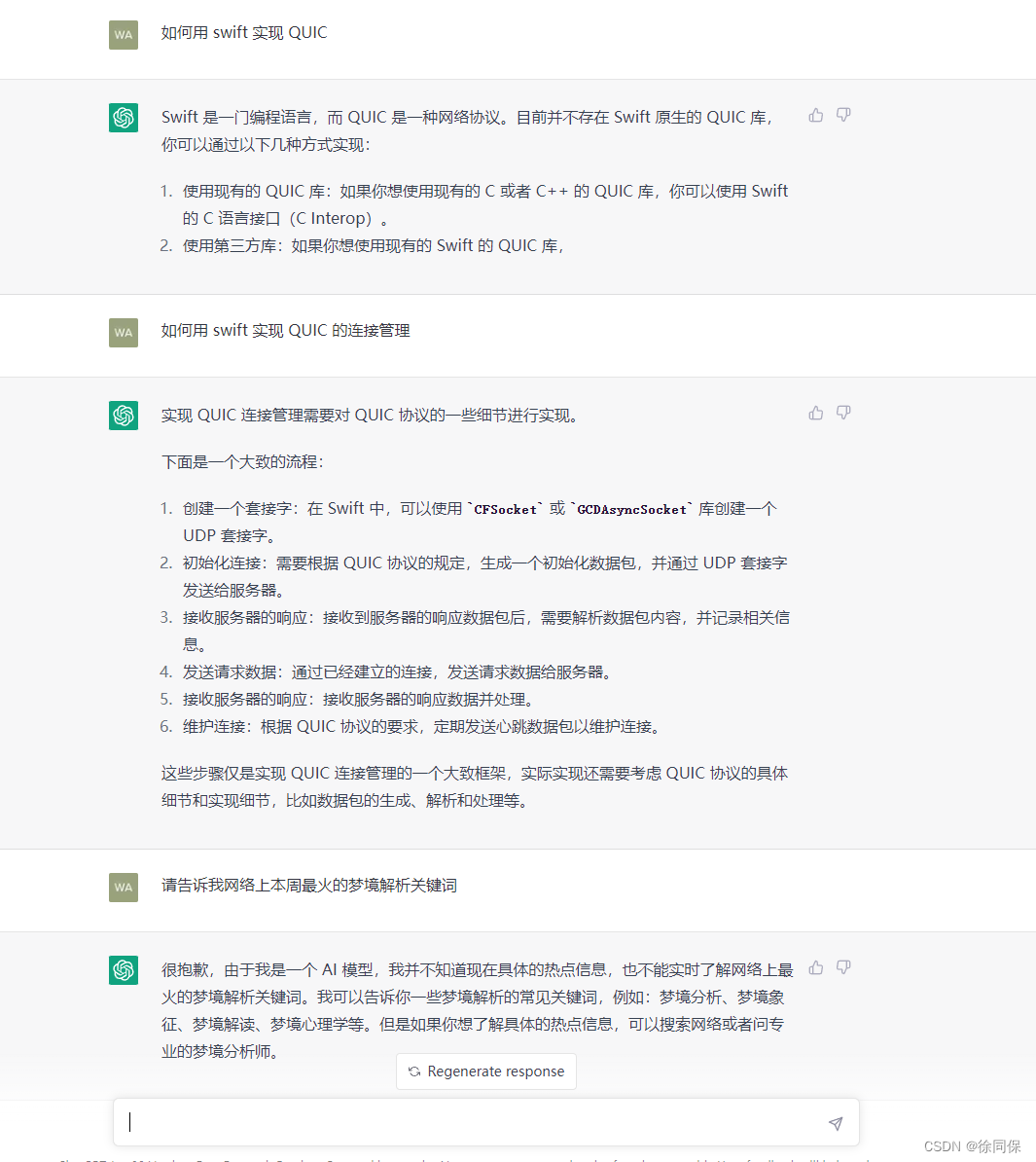
![]() 编辑
编辑
官方Javascript沙盒应用
https://platform.openai.com/codex-javascript-sandbox
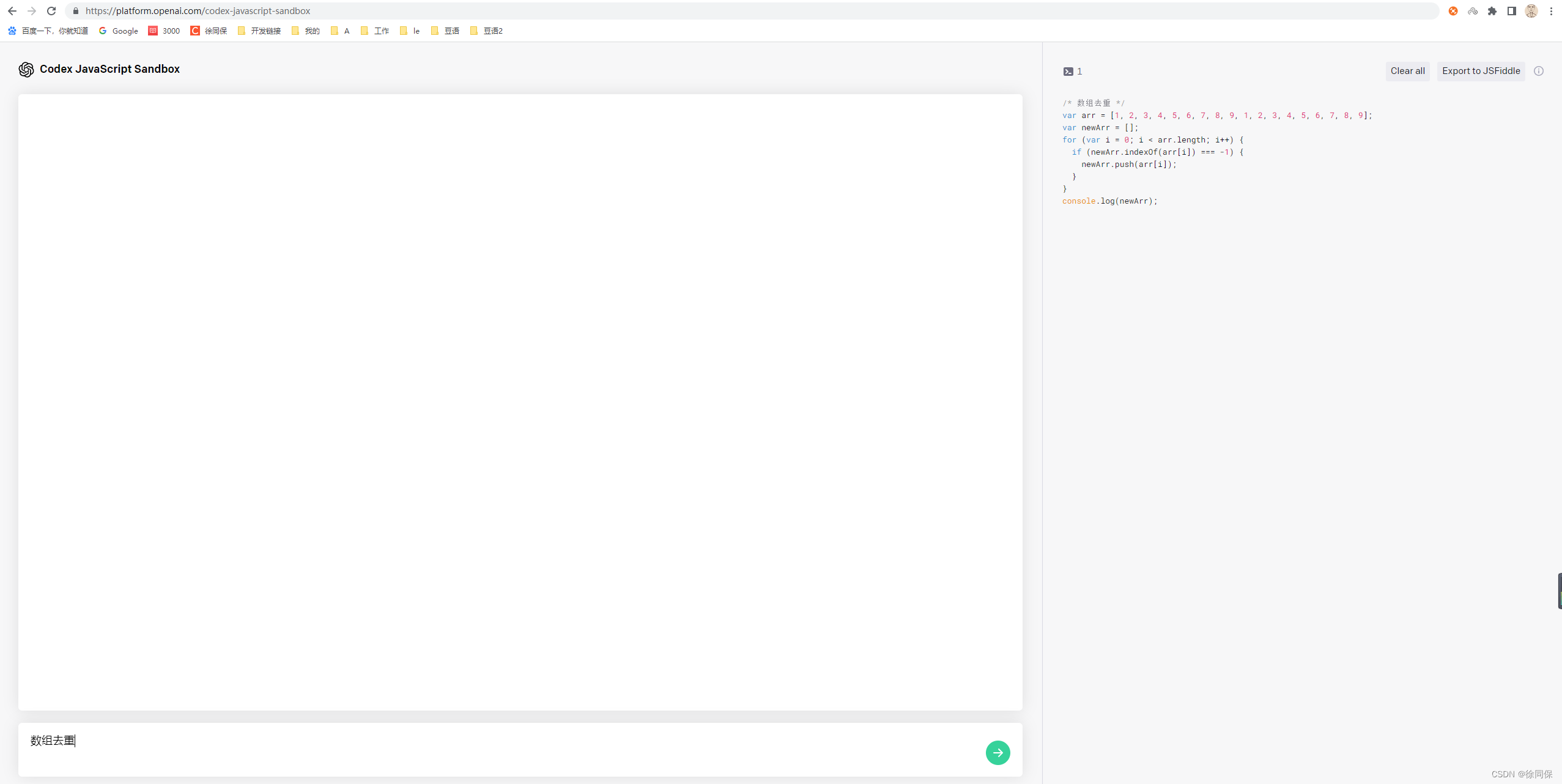
![]() 编辑
编辑
官方技术文档
https://platform.openai.com/docs/introduction
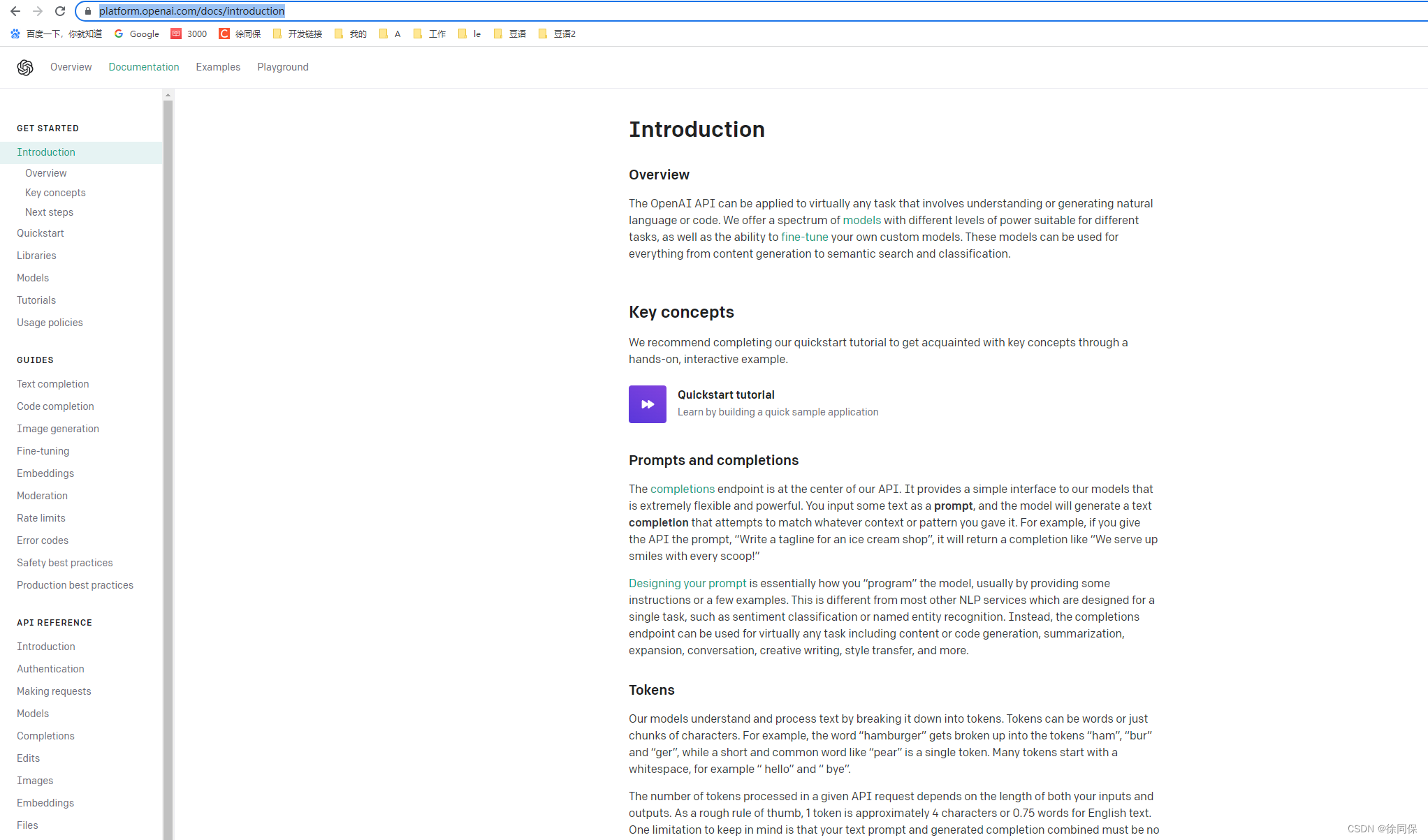
![]() 编辑
编辑
node调用ChatGPT的API
装包:
yarn add openai
获取API Keys:
https://platform.openai.com/docs/api-reference/introduction
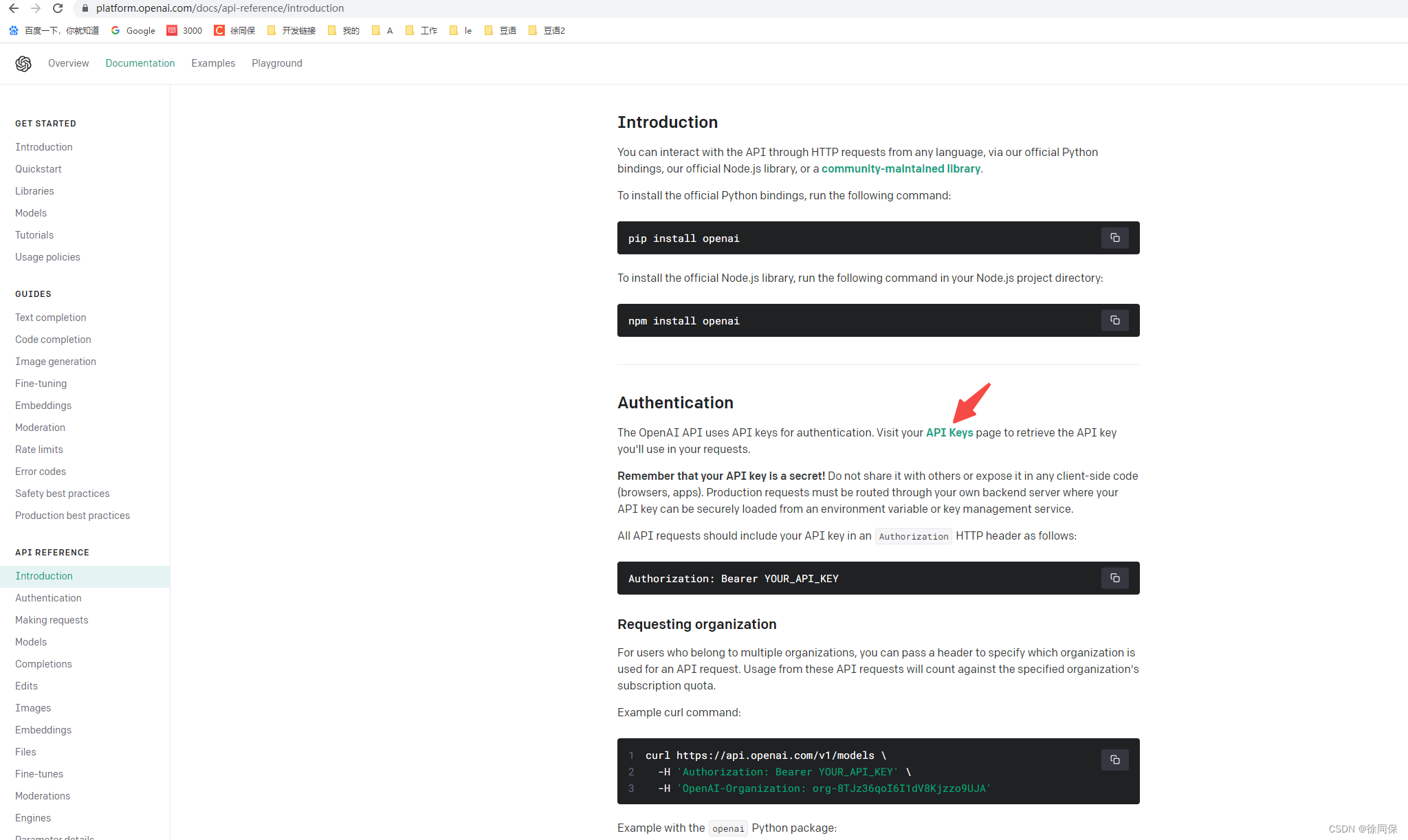
![]() 编辑
编辑
https://platform.openai.com/account/api-keys
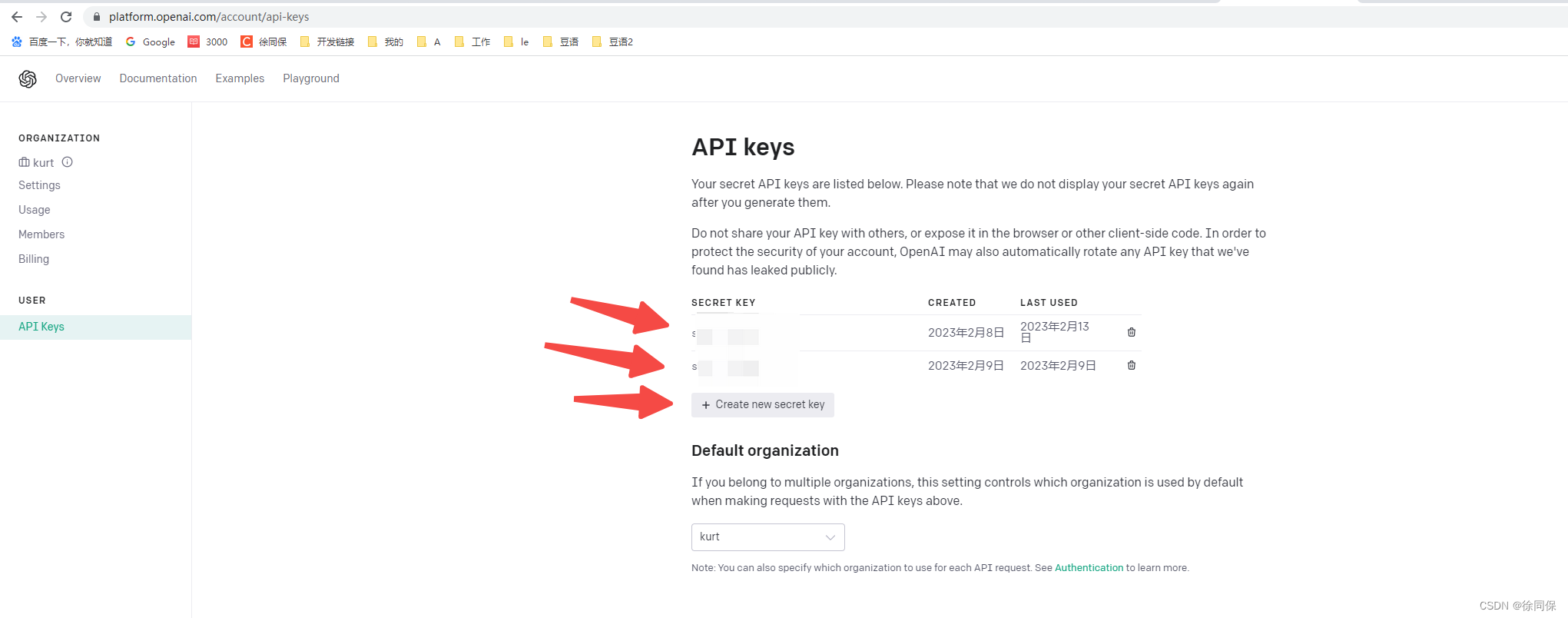
![]() 编辑
编辑
获取Organization ID:
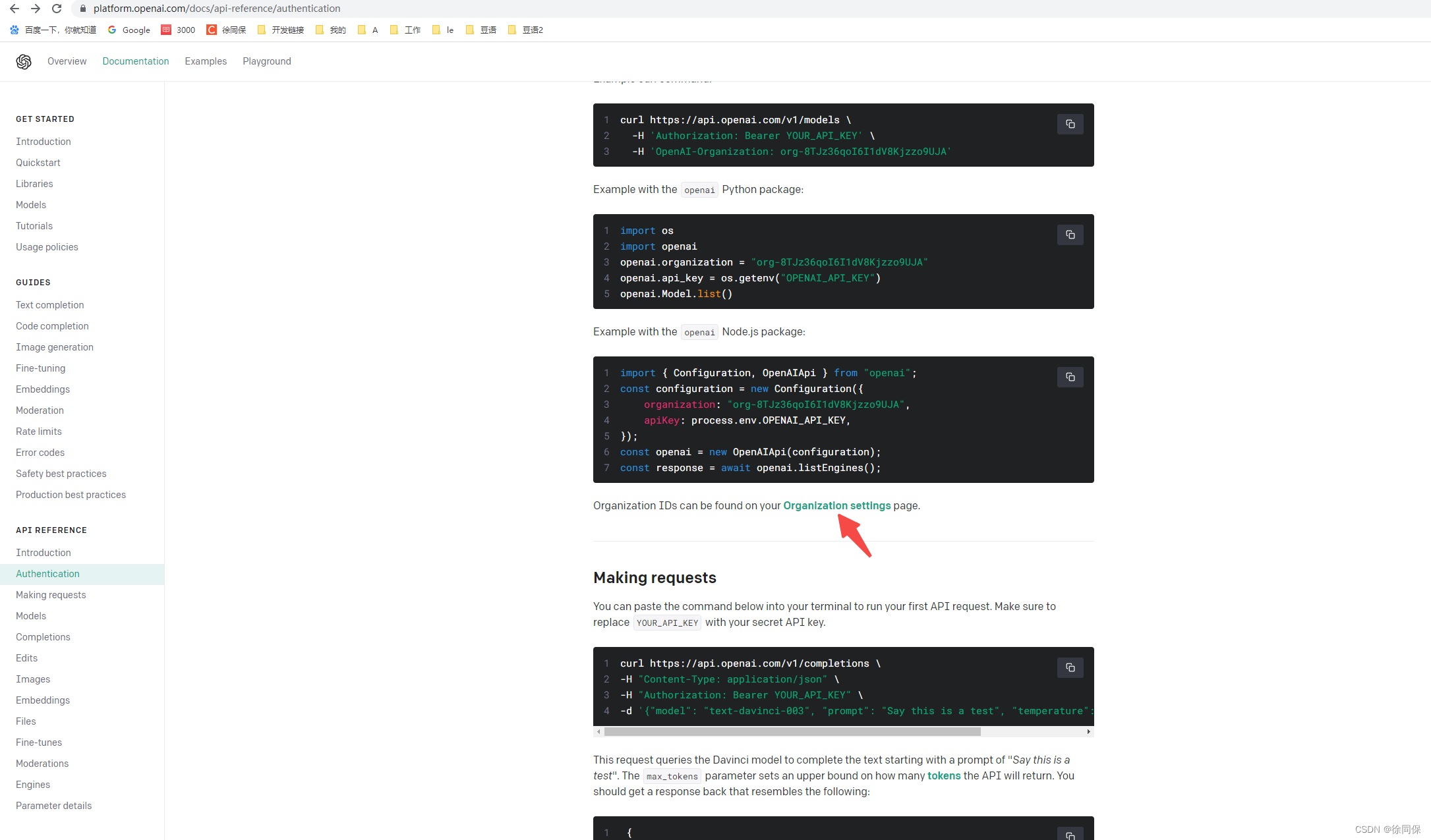
![]() 编辑
编辑
https://platform.openai.com/account/org-settings
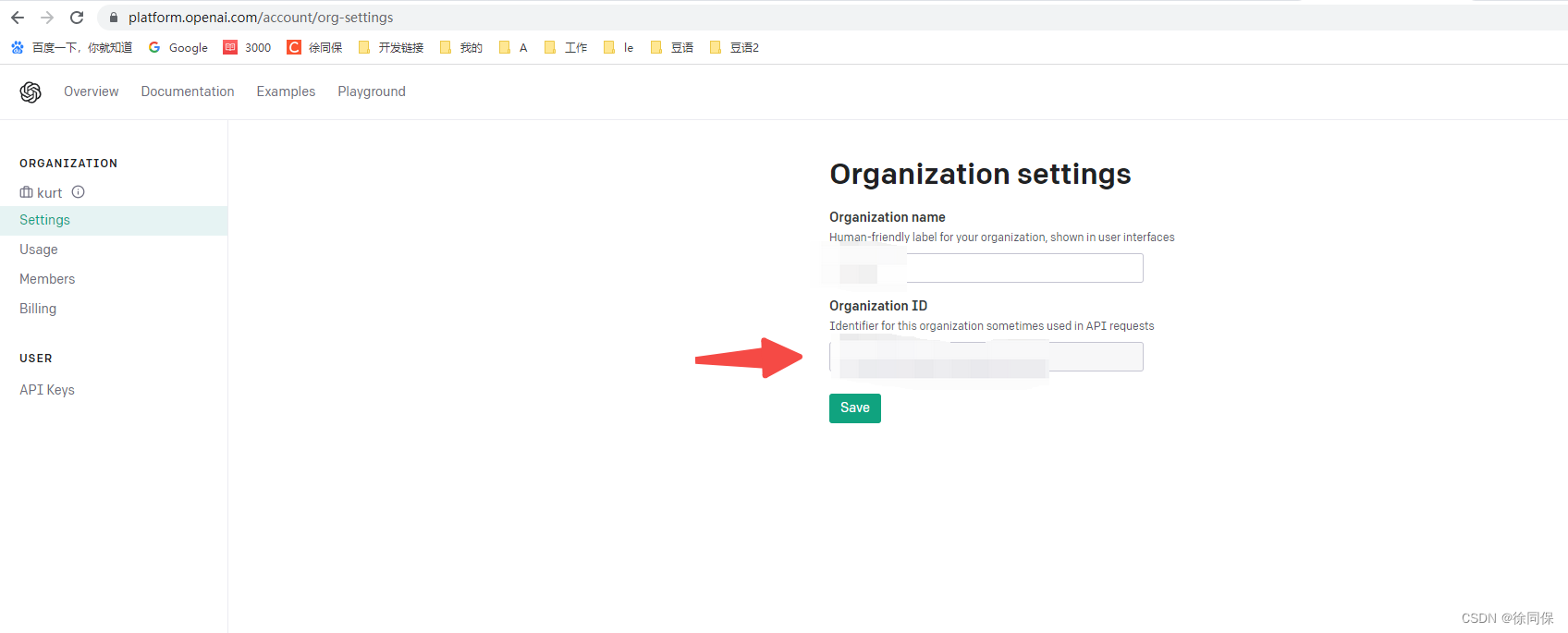
![]() 编辑node代码:
编辑node代码:
const { Configuration, OpenAIApi } = require('openai')
const configuration = new Configuration({
organization: 'xxx',
apiKey: 'xxx',
})
const openai = new OpenAIApi(configuration)
//增加
const chatAdd = async (req, res) => {
const {
talkId = '',
name = '',
messageType = '1',
message = '',
modelType = '1',
promptType = '1',
} = req.body
const uid = uuidv4()
const now = Date.now()
const talkRedis = await redisClient.get('talk')
let talkList = JSON.parse(talkRedis)
const resultIndex = talkList.findIndex((item) => item.uid === talkId)
if (resultIndex >= 0) {
if (message && message.trim() !== '') {
const chatRedis = await redisClient.get('chat')
let chatList = JSON.parse(chatRedis)
chatList = Array.isArray(chatList) ? chatList : []
let currentChatList = chatList
.filter((item) => item.talkId === talkId)
.sort((a, b) => a.createTime - b.createTime)
let prompt = ''
if (promptType === '1') {
if (currentChatList.length > 0) {
let shotChatList = currentChatList
if (currentChatList.length > 10) {
shotChatList = currentChatList.slice(currentChatList.length - 10)
}
shotChatList.forEach((item) => {
let { messageType, message } = item
if (messageType === '1') {
prompt += `YOU:${message}\n`
} else if (messageType === '2') {
//message = encodeURIComponent(message)
prompt += `${message}\n`
}
})
}
prompt += `YOU:${message}\n`
} else if (promptType === '2') {
if (currentChatList.length > 0) {
let shotChatList = currentChatList
if (currentChatList.length > 10) {
shotChatList = currentChatList.slice(currentChatList.length - 10)
}
shotChatList.forEach((item) => {
const { messageType, message } = item
if (messageType === '1') {
prompt += `\n/* Command: ${message} */\n`
} else if (messageType === '2') {
//message = encodeURIComponent(message)
prompt += `${message}\n`
}
})
}
prompt += `<|endoftext|>/* I start with a blank HTML page, and incrementally modif it via <script> injection. Written for Chrome. */\n/* Command: Add "Hello World", by adding an HTML DOM node */\nvar helloWorld = document.createElement('div');\nhelloWorld.innerHTML = 'Hello World';\ndocument.body.appendChild(helloWorld);\n/* Command: Clear the page. */\nwhile (document.body.firstChild) {\n document.body.removeChild(document.body.firstChild);\n}\n\n/* Command: ${message} */\n`
}
let completion
try {
let hooks = [
{
value: '1',
lable: 'text-davinci-003',
},
{
value: '2',
lable: 'code-davinci-002',
},
]
let resultIndex = hooks.findIndex((item) => item.value === modelType)
let model = 'text-davinci-003'
if (resultIndex >= 0) {
model = hooks[resultIndex].lable
}
const completionRes = await openai.createCompletion({
model,
// prompt:
// 'YOU:你好\n你好。很高兴见到你。\nYOU:你叫什么名字\n我叫小爱。很高兴见到你!\nYOU:介绍一下元宵节\n',
prompt,
max_tokens: 2048,
})
completion = completionRes.data
} catch (error) {
res.send({
code: 200,
data: {
isRobotBusy: true,
},
message: '失败-机器人无应答',
})
return
}
if (
Array.isArray(completion.choices) &&
completion.choices.length > 0 &&
completion.choices[0].text
) {
const values = []
let robotMessage = completion.choices[0].text
robotMessage = robotMessage.replace(/\n/, '')
//robotMessage = decodeURIComponent(robotMessage)
values.push(`(
'${uid}',
'${talkId}',
'${name}',
'${messageType}',
'${message}',
'${now}',
'${now}',
'新增'
)`)
const uidForRobot = uuidv4()
values.push(`(
'${uidForRobot}',
'${talkId}',
'robot',
'2',
'${robotMessage}',
'${now + 1000}',
'${now + 1000}',
'新增'
)`)
const valuesStr = values.join(',')
let err = await runSql(
`INSERT INTO chat (
uid,
talkId,
name,
messageType,
message,
createTime,
updateTime,
remarks
)
VALUES ${valuesStr}`
)
if (err) {
res.send({
code: 400,
data: {
err: err.stack,
},
message: '添加失败',
})
} else {
await refreshRedis({ tableName: 'chat' })
res.send({
code: 200,
data: {
//isRobotBusy: true,
prompt,
robotMessage,
},
message: '添加成功',
})
}
} else {
res.send({
code: 400,
data: {},
message: '失败-机器人无应答',
})
}
} 

